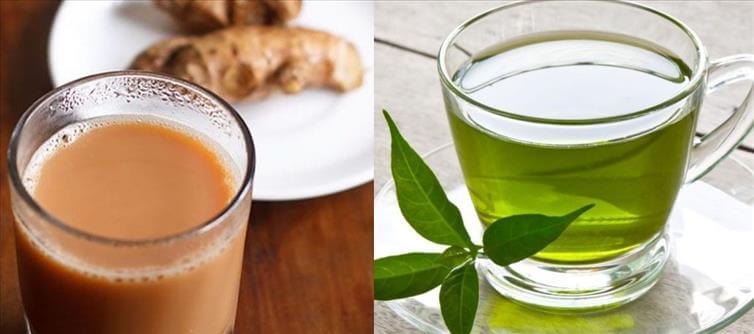
These teas are high in antioxidants and anti-inflammatory qualities, which strengthen our defenses and give us more energy. Let's investigate the relative merits of ginger and green tea.
Ginger Tea
Fresh ginger is used to make ginger tea, a herbal drink without caffeine. It has a peppery flavor. It has anti-inflammatory properties, improves digestion, and increases immunity, among other health benefits. ginger tea also helps with coughing and colds and enhances respiratory health. It combats the bacteria or viruses that cause throat infections. ginger tea is particularly helpful in the winter as part of traditional medicines.
Green Tea
Steamed tea leaves are used to make green tea, a nutrient-dense, low-calorie beverage. It has a lot of antioxidants, which lower inflammation and shield cells from harm. Additionally, green tea increases metabolism and promotes weight reduction. It fights infections, boosts immunity, and detoxifies the body. Green tea's catechins improve general health by lowering oxidative stress.
Which is Healthier?
During the winter, tea is a great method to stay warm and stay healthy. The decision between ginger tea and green tea is based on individual requirements and tastes. But in the winter, ginger tea works especially well for colds and coughs. Conversely, green tea is said to be beneficial for general health.




 click and follow Indiaherald WhatsApp channel
click and follow Indiaherald WhatsApp channel